John Ruskin - Love's Meinie - Three Lectures on Greek and English Birds
Здесь есть возможность читать онлайн «John Ruskin - Love's Meinie - Three Lectures on Greek and English Birds» — ознакомительный отрывок электронной книги совершенно бесплатно, а после прочтения отрывка купить полную версию. В некоторых случаях можно слушать аудио, скачать через торрент в формате fb2 и присутствует краткое содержание. Издательство: Иностранный паблик, Жанр: Биология, literature_19, foreign_edu, foreign_antique, на английском языке. Описание произведения, (предисловие) а так же отзывы посетителей доступны на портале библиотеки ЛибКат.
- Название:Love's Meinie: Three Lectures on Greek and English Birds
- Автор:
- Издательство:Иностранный паблик
- Жанр:
- Год:неизвестен
- ISBN:нет данных
- Рейтинг книги:3 / 5. Голосов: 1
-
Избранное:Добавить в избранное
- Отзывы:
-
Ваша оценка:
- 60
- 1
- 2
- 3
- 4
- 5
Love's Meinie: Three Lectures on Greek and English Birds: краткое содержание, описание и аннотация
Предлагаем к чтению аннотацию, описание, краткое содержание или предисловие (зависит от того, что написал сам автор книги «Love's Meinie: Three Lectures on Greek and English Birds»). Если вы не нашли необходимую информацию о книге — напишите в комментариях, мы постараемся отыскать её.
Love's Meinie: Three Lectures on Greek and English Birds — читать онлайн ознакомительный отрывок
Ниже представлен текст книги, разбитый по страницам. Система сохранения места последней прочитанной страницы, позволяет с удобством читать онлайн бесплатно книгу «Love's Meinie: Three Lectures on Greek and English Birds», без необходимости каждый раз заново искать на чём Вы остановились. Поставьте закладку, и сможете в любой момент перейти на страницу, на которой закончили чтение.
Интервал:
Закладка:
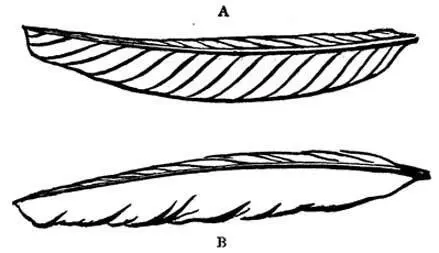
Fig. 2.
Hitherto, I have been speaking only of the filaments arranged for the strength and continuity of the energetic plume; they are entirely different when they are set together for decoration instead of force. After the feather of the robin's wing, let us examine one from his breast.
33. I said, just now, he might be at once outshone by a brickbat. Indeed, the day before yesterday, sleeping at Lichfield, and seeing, the first thing when I woke in the morning, (for I never put down the blinds of my bedroom windows,) the not uncommon sight in an English country town of an entire house-front of very neat, and very flat, and very red bricks, with very exactly squared square windows in it; and not feeling myself in anywise gratified or improved by the spectacle, I was thinking how in this, as in all other good, the too much destroyed all. The breadth of a robin's breast in brick-red is delicious, but a whole house-front of brick-red as vivid, is alarming. And yet one cannot generalize even that trite moral with any safety—for infinite breadth of green is delightful, however green; and of sea or sky, however blue.
You must note, however, that the robin's charm is greatly helped by the pretty space of gray plumage which separates the red from the brown back, and sets it off to its best advantage. There is no great brilliancy in it, even so relieved; only the finish of it is exquisite.
34. If you separate a single feather, you will find it more like a transparent hollow shell than a feather (so delicately rounded the surface of it),—gray at the root, where the down is,—tinged, and only tinged, with red at the part that overlaps and is visible; so that, when three or four more feathers have overlapped it again, all together, with their joined red, are just enough to give the color determined upon, each of them contributing a tinge. There are about thirty of these glowing filaments on each side, (the whole being no larger across than a well-grown currant,) and each of these is itself another exquisite feather, with central quill and lateral webs, whose filaments are not to be counted.
The extremity of these breast plumes parts slightly into two, as you see in the peacock's, and many other such decorative ones. The transition from the entirely leaf-like shape of the active plume, with its oblique point, to the more or less symmetrical dualism of the decorative plume, corresponds with the change from the pointed green leaf to the dual, or heart-shaped, petal of many flowers. I shall return to this part of our subject, having given you, I believe, enough of detail for the present.
35. I have said nothing to-day of the mythology of the bird, though I told you that would always be, for us, the most important part of its natural history. But I am obliged, sometimes, to take what we immediately want, rather than what, ultimately, we shall need chiefly. In the second place, you probably, most of you, know more of the mythology of the robin than I do, for the stories about it are all northern, and I know scarcely any myths but the Italian and Greek. You will find under the name "Robin," in Miss Yonge's exhaustive and admirable "History of Christian Names," the various titles of honor and endearment connected with him, and with the general idea of redness,—from the bishop called "Bright Red Fame," who founded the first great Christian church on the Rhine, (I am afraid of your thinking I mean a pun, in connection with robins, if I tell you the locality of it,) down through the Hoods, and Roys, and Grays, to Robin Goodfellow, and Spenser's "Hobbinol," and our modern "Hob,"—joining on to the "goblin," which comes from the old Greek Κοβαλος [Greek: Kobalos]. But I cannot let you go without asking you to compare the English and French feeling about small birds, in Chaucer's time, with our own on the same subject. I say English and French, because the original French of the Romance of the Rose shows more affection for birds than even Chaucer's translation, passionate as he is, always, in love for any one of his little winged brothers or sisters. Look, however, either in the French or English at the description of the coming of the God of Love, leading his carol-dance, in the garden of the Rose.
His dress is embroidered with figures of flowers and of beasts; but about him fly the living birds. The French is:
Il etoit tout convert d'oisiaulx
De rossignols et de papegaux
De calendre, et de mesangel.
Il semblait que ce fut une angle
Qui fuz tout droit venuz du ciel.
36. There are several points of philology in this transitional French, and in Chaucer's translation, which it is well worth your patience to observe. The monkish Latin "angelus," you see, is passing through the very unpoetical form "angle," into "ange;" but, in order to get a rhyme with it in that angular form, the French troubadour expands the bird's name, "mesange," quite arbitrarily, into "mesangel." Then Chaucer, not liking the "mes" at the beginning of the word, changes that unscrupulously into "arch;" and gathers in, though too shortly, a lovely bit from another place about the nightingales flying so close round Love's head that they strike some of the leaves off his crown of roses; so that the English runs thus:
But nightingales, a full great rout
That flien over his head about,
The leaves felden as they flien
And he was all with birds wrien,
With popinjay, with nightingale,
With chelaundre, and with wodewale,
With finch, with lark, and with archangel.
He seemed as he were an angell,
That down were comen from Heaven clear.
Now, when I first read this bit of Chaucer, without referring to the original, I was greatly delighted to find that there was a bird in his time called an archangel, and set to work, with brightly hopeful industry, to find out what it was. I was a little discomfited by finding that in old botany the word only meant "dead-nettle," but was still sanguine about my bird, till I found the French form descend, as you have seen, into a mesangel, and finally into mesange, which is a provincialism from μειον [Greek: meion], and means, the smallest of birds—or, specially here,—a titmouse. I have seldom had a less expected or more ignominious fall from the clouds.
37. The other birds, named here and in the previous description of the garden, are introduced, as far as I can judge, nearly at random, and with no precision of imagination like that of Aristophanes; but with a sweet childish delight in crowding as many birds as possible into the smallest space. The popinjay is always prominent; and I want some of you to help me (for I have not time at present for the chase) in hunting the parrot down on his first appearance in Europe. Just at this particular time he contested favor even with the falcon; and I think it a piece of good fortune that I chanced to draw for you, thinking only of its brilliant color, the popinjay, which Carpaccio allows to be present on the grave occasion of St. George's baptizing the princess and her father.
38. And, indeed, as soon as the Christian poets begin to speak of the singing of the birds, they show themselves in quite a different mood from any that ever occurs to a Greek. Aristophanes, with infinitely more skill, describes, and partly imitates, the singing of the nightingale; but simply as beautiful sound. It "fills the thickets with honey;" and if in the often-quoted—just because it is not characteristic of Greek literature—passage of the Coloneus, a deeper sentiment is shown, that feeling is dependent on association of the bird-voices with deeply pathetic circumstances. But this troubadour finds his heart in heaven by the power of the singing only:—
Читать дальшеИнтервал:
Закладка:
Похожие книги на «Love's Meinie: Three Lectures on Greek and English Birds»
Представляем Вашему вниманию похожие книги на «Love's Meinie: Three Lectures on Greek and English Birds» списком для выбора. Мы отобрали схожую по названию и смыслу литературу в надежде предоставить читателям больше вариантов отыскать новые, интересные, ещё непрочитанные произведения.
Обсуждение, отзывы о книге «Love's Meinie: Three Lectures on Greek and English Birds» и просто собственные мнения читателей. Оставьте ваши комментарии, напишите, что Вы думаете о произведении, его смысле или главных героях. Укажите что конкретно понравилось, а что нет, и почему Вы так считаете.
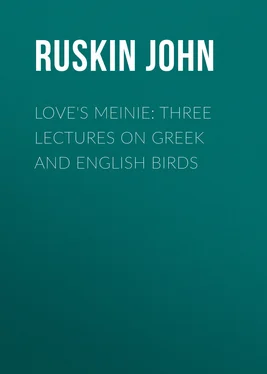
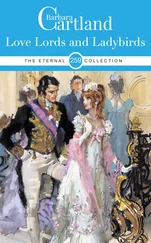

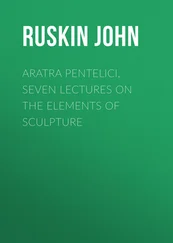

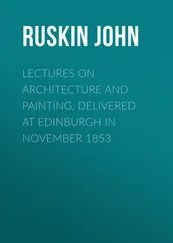


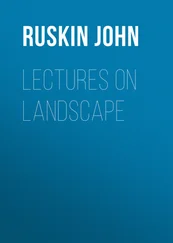

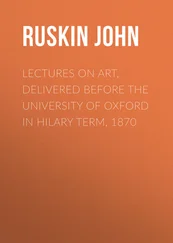

![John Bruce - The Lettsomian Lectures on Diseases and Disorders of the Heart and Arteries in Middle and Advanced Life [1900-1901]](/books/749387/john-bruce-the-lettsomian-lectures-on-diseases-and-disorders-of-the-heart-and-arteries-in-middle-and-advanced-life-1900-1901-thumb.webp)